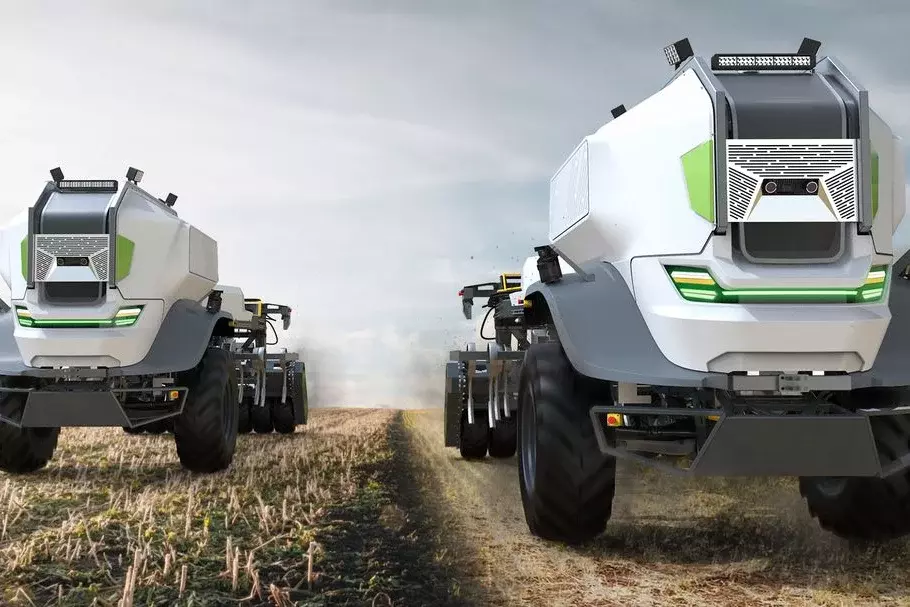Automation in the Agricultural Sector
The federally funded research project “Field Swarm Ecosystem” is currently considered one of the most important key projects in agricultural engineering in the field of robotics and automation.

Building on the results of the ""Feldschwarm [Field Swarm]" growth core development project, which is also funded by the German Federal Ministry of Education and Research (BMBF), a technology platform for adaptive autonomous agricultural machinery is to be developed that can be used across all manufacturers in the range from assistance systems to autonomously operating swarm scenarios. As a result, the simultaneous operation of several machines and modern robots by an operator who can monitor and intervene in the work process at any time should be possible.
In the initial "Feldschwarm" project, small, intelligent machine units were developed and tested, which can be flexibly combined and thus perfectly adapted to the respective requirements and conditions in the field. The RUBIN consortium (RUBIN = "Regional Entrepreneurial Alliances for Innovation", a BMBF program) that has now been launched focuses on the operators, who monitor the work process in the field and can intervene at any time. The field swarm ecosystem is intended to enable the automated and simultaneous operation of several agricultural machines and modern agricultural robots for the first time.
To this end, the project participants are developing a comprehensive hardware and IT control architecture that integrates innovative systems for the semi-autonomous control of several agricultural machines and for remote and process monitoring. They are also researching new technologies and processes for artificial intelligence, remote and process monitoring and cyber security to ensure trouble-free, safe operation. The new control systems will be integrated into both standard agricultural machinery and modern field swarm agricultural robots and tested for effectiveness and efficiency in joint operation.
The following project partners are involved in the "Feldschwarm ecosystem" project:
- BITSz electronics GmbH - development and production of control and sensor systems,
- Eidam Landtechnik GmbH - development and production of agricultural technology, especially for soil cultivation,
- Estino GmbH - development and production of hardware and software system solutions for reliability assurance in vehicle and agricultural engineering,
- Fraunhofer Institute for Transportation and Infrastructure Systems - Development of a control station architecture for the agricultural sector as well as safety and security concepts for automated agricultural technology,
- Fraunhofer Institute for Machine Tools and Forming Technology - Research and development of functionally integrated lightweight structures and their production technologies,
- Hydrive Engineering GmbH - Development and production of control stations, training test benches and virtual development environments,
- IndiKar Individual Karosseriebau GmbH - Development and production of special vehicles and special equipment systems,
- LACOS Computerservice GmbH - Development of software for heterogeneous swarm navigation and control of semi-autonomous agricultural machinery,
- LEMKEN GmbH & Co. KG - Development and production of sensor technology for process monitoring,
- Reichhardt GmbH Steuerungstechnik - alliance coordinator; development and production of automation systems for agricultural machinery,
- Dresden University of Technology - Professorship of Agricultural Systems Engineering - Research and development of machine concepts and machine systems,
- Dresden University of Technology - Chair of Technical Design - Research and development of modular operating systems,
- Leipzig University - Institute of Information Systems - research and development of intelligent processes and methods, including plant recognition using artificial intelligence.
The project is coordinated by LACOS Computerservice GmbH.
Feldschwarm EcoSystem